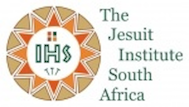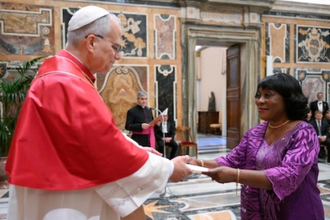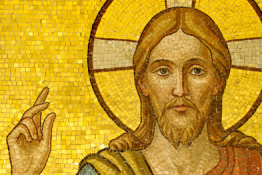Reflection from South Africa: A State of Emergency in 2018?

Source: Jesuit Institute, South Africa
Though the Presidency has denied it, the recent revelation that the President's Office has started drafting new state of emergency regulations is disturbing. It is even more disturbing when one hears that the military have been briefed about it, or have started working out how it might be implemented. Details leaked to the press this weekend include how the State of Emergency might be implemented.
It gives widespread powers to the security forces to detain political dissidents and to shut down internet and cell phone access. Though it pays lip service to the Constitution and Bill of Rights, and theoretically can only last three months, no one should trust such claims. History teaches us that states of emergency last as long as their imposers wish.
Is this all alarmism? After all, militaries and governments the world over engage in such scenario planning and military exercises, partly in anticipation of imagined threats, partly to keep security services on their toes. It is possible that this may all just be an exercise. I hope that's the case, but we should be vigilant.
Consider the following.
First, the presidency of Jacob Zuma is under threat. Whether by the time you read this the ANC have elected Zuma's candidate or Cyril Ramaphosa, or are deadlocked, the pressure on Zuma and his cronies is growing. Popular discontent is growing and the 2019 elections are no longer a run-in. If Zuma 'loses' this weekend, he is very vulnerable. If he 'wins' he is also vulnerable - to ongoing pressure from below culminating in possibly leading the ANC into at best a hung 2019 election, at worst a defeat. If he is forced to step down from the presidency before 2019, he is also vulnerable - as are his political cronies, including those in the parliamentary 'security cluster'. We have, as they say in detective stories, motive.
Did I just say 'security'? We move to, second, the means. Zuma has long controlled the security services - military, police, intelligence - through his cronies in the 'security cluster'. Jacques Pauw's book shows how the latter two services have served him in the past, covering for Zuma rather than serving the country's interest. We have also seen how effective blocking cell phone and internet signals can be at the 2015 State of the Nation Address.
Finally, let us speculate on method. The best time for a coup - because let's face it, a state of emergency is nothing more than a coup from above - is the early hours of the morning. People are at home, asleep. Few notice the barricades going up, the internet coming down, and the army on the streets. A public holiday is even better: people aren't going to work that day, especially if they've been partying the night before. The obvious time: 3am on New Year's Day.
But would Zuma do this, given that this was the survival strategy of his apartheid-era predecessors? Though I'd like to say he couldn't step this low, I just don't know. Would the army follow orders? Would South Africa accept this? I just don't know.
Follow the Jesuit Institute on twitter @JesuitInstitute

















